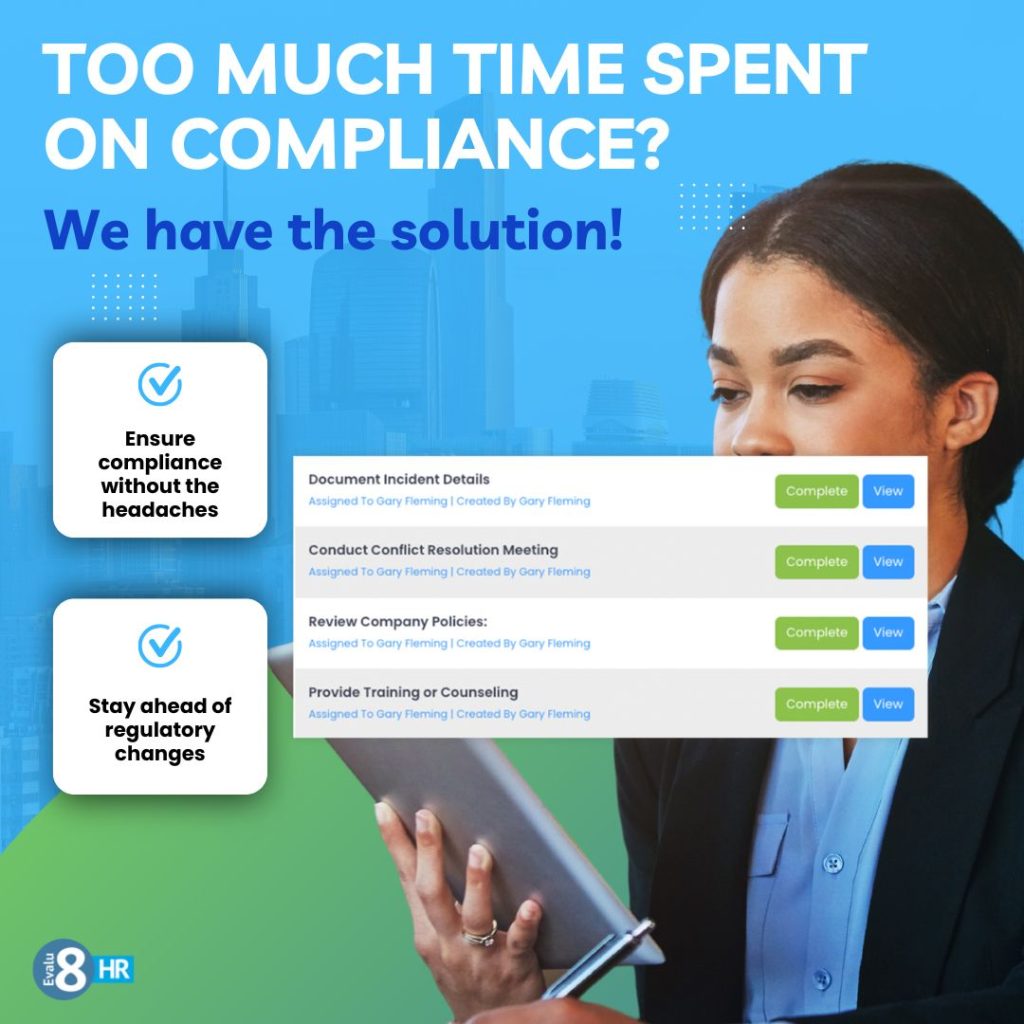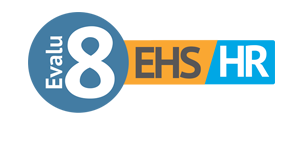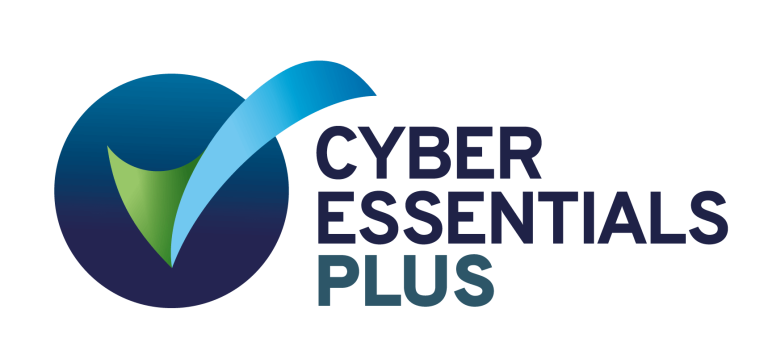Navigating HR compliance in professional services can feel like walking a tightrope. For industries like law, accounting, and insurance, staying on top of constantly evolving regulations is critical—not only to avoid costly fines but to ensure the smooth running of business operations. In 2025, the stakes are even higher, as more complex regulations, data protection laws, and employee expectations challenge HR teams to remain vigilant and adaptable. To prevent costly mistakes, businesses in professional services must get proactive with their HR compliance strategy. Let’s break down the most common HR compliance nightmares and explore practical ways to avoid them.
TL;DR:
In professional services, HR compliance is critical to avoid costly mistakes. Key challenges include staying on top of constantly changing regulations, protecting sensitive data, handling employee contracts correctly, supporting employee wellbeing, and ensuring ongoing training. To mitigate risks, businesses should adopt HR management software, implement data protection protocols, provide mental health support, tailor employee contracts, and prioritise continuous professional development. By addressing these areas, firms can stay compliant, reduce legal risks, and create a positive workplace culture.

Keeping Up with Constantly Changing Compliance Regulations
The Challenge of Adapting to Evolving Regulations
Professional services firms, particularly those in law, accounting, and insurance, must comply with a wide range of national and international regulations. From GDPR and employment law to tax regulations and financial compliance, keeping up can quickly become overwhelming. The problem isn’t just the volume of regulations—it’s the frequency with which they change.
For example, GDPR (General Data Protection Regulation) is one of the most stringent data protection laws worldwide. Firms handling sensitive client data, like accountants and solicitors, must ensure they have proper systems in place to prevent breaches. Non-compliance could lead to heavy fines and significant reputational damage.
How to Stay Ahead
To avoid falling victim to compliance nightmares, businesses need to implement a comprehensive compliance management system. This system should be:
- Regularly updated: Set up a routine to stay informed about any changes to relevant regulations. Subscribing to industry newsletters and engaging with professional bodies will help you stay ahead.
- Digitally integrated: Using HR management software that updates automatically based on changes in regulations can save time and reduce human error.
- Employee training: Ensure employees, especially HR teams, are continuously trained on the latest regulatory changes. This creates a culture of compliance throughout the organisation.
Adopting these strategies will make it far easier to stay compliant and avoid costly fines.
Failing to Protect Sensitive Data and Personal Information
Data Protection: A Growing Concern
In today’s digital world, handling personal data is one of the most significant challenges professional services firms face. With the increase in data breaches and stricter data protection laws, the risks are higher than ever. Accountants, solicitors, and insurers deal with sensitive financial, legal, and personal client data on a daily basis, and the responsibility to protect this data is paramount.
GDPR aside, there are other national data protection laws that must be adhered to, including the Data Protection Act 2018 in the UK, which mandates stringent measures for data handling and storage.
The Mistakes to Avoid
One of the most common mistakes is the failure to implement proper data security protocols. Without adequate encryption, firewalls, and secure cloud storage solutions, businesses expose themselves to significant risks. In addition, data retention policies should be clearly defined and adhered to, ensuring that personal data isn’t held longer than necessary.
How to Safeguard Sensitive Data
- Invest in robust security tools: Ensure your HR and accounting systems are protected by state-of-the-art cybersecurity tools, including encryption, firewalls, and two-factor authentication.
- Data retention policies: Review and implement clear policies for storing, retaining, and destroying sensitive data in accordance with the Data Protection Act and GDPR.
- Regular audits: Conduct regular data audits to ensure compliance with legal requirements. This will help identify vulnerabilities and address them before they result in a breach.
By protecting your client and employee data, you minimise the risk of fines and reputational damage.
Mishandling Employee Contracts and Documentation
The Risks of Improper Employee Contracts
Employee contracts, especially in the professional services sector, are not a one-size-fits-all document. Each sector—whether it’s law, accounting, or insurance—has specific contractual requirements. Failing to draft legally compliant contracts or neglecting to provide essential documentation can lead to legal disputes and costly claims against your business.
Solicitors may need to create specific clauses that comply with legal standards, while accountants and insurers must be careful about confidentiality and data protection within their employee agreements. Many firms also overlook the importance of employment handbooks and fail to update them in line with new laws.
The Mistakes to Avoid
- Generic contracts: Using standardised contracts without ensuring they meet the industry-specific requirements can lead to gaps in compliance.
- Unclear policies: Failing to document and communicate HR policies clearly leaves room for misunderstanding, leading to potential legal issues down the line.
- Not keeping records updated: Employee contracts, role descriptions, and policies need to be updated regularly to reflect changes in law or business practices.
How to Avoid These Pitfalls
- Customised contracts: Work with a qualified legal team to ensure all contracts and employment documentation are specific to your business needs and comply with applicable laws.
- Regular reviews: Implement a system for periodically reviewing contracts and policies to ensure they remain compliant with changing laws and regulations.
- Clear documentation: Maintain clear and comprehensive employee handbooks that outline roles, responsibilities, and company policies.
By keeping employee documentation airtight, you reduce the risk of legal disputes and ensure smoother HR operations.
Overlooking Employee Wellbeing and Mental Health
The Hidden Costs of Neglecting Employee Wellbeing
In 2025, employee wellbeing, particularly mental health, will play a crucial role in an organisation’s compliance strategy. Professional services firms are notorious for high-pressure environments. Long hours, tight deadlines, and high client expectations can contribute to stress and burnout among employees, especially those in accounting, law, and insurance. Failing to address these issues can lead to high turnover rates, increased absenteeism, and even legal action if employees feel their wellbeing is not adequately protected.
The Legal Obligations for Employee Wellbeing
UK employers are legally required to provide a safe and healthy working environment under the Health and Safety at Work Act. This extends beyond physical safety to include mental health. If employees experience stress, burnout, or anxiety because of poor working conditions, businesses could face legal repercussions.
How to Support Employee Wellbeing
- Offer mental health support: Provide access to Employee Assistance Programmes (EAPs), where employees can confidentially seek support for mental health challenges.
- Promote work-life balance: Encourage a culture where employees are not expected to work excessive overtime. Implement flexible working hours and offer the possibility of remote work when possible.
- Regular check-ins: Managers should have regular one-on-one meetings with their team members to assess workload, offer support, and ensure employees feel heard and valued.
By prioritising employee wellbeing, firms not only comply with legal obligations but also foster a positive work environment that leads to improved employee satisfaction and productivity.
Ignoring The Need for Robust Training and Development
The Compliance Pitfall of Inadequate Employee Training
One of the easiest mistakes to make in HR compliance is failing to provide adequate training to employees. In sectors like law, accounting, and insurance, there are constant updates to regulations and compliance standards. Without comprehensive training, employees may unintentionally make mistakes that put the company at risk. Furthermore, insufficient training on anti-money laundering (AML) practices, cybersecurity, and client confidentiality can lead to severe consequences.
How to Implement Effective Training
- Ongoing education: Ensure that employees receive continuous professional development (CPD). This should include compliance-focused training sessions on the latest regulations, ethical guidelines, and industry standards.
- Tailored training: Customise training programmes to the specific needs of your organisation and the role of each employee, whether it’s focused on client data protection for accountants or legal ethics for solicitors.
- Track progress: Use HR software to track employee training and certifications. This allows for easier reporting and ensures that training gaps are identified and addressed promptly.
When employees are well-trained, they are less likely to make costly mistakes, and your company is far less vulnerable to compliance breaches.
Avoiding HR Compliance Nightmares Is Possible
Staying compliant in the ever-evolving landscape of professional services can be challenging, but it’s far from impossible. By embracing the right tools, focusing on employee wellbeing, and ensuring that documentation and contracts are tailored to specific needs, businesses can dramatically reduce the risks of HR compliance failures. Prioritising continuous training and integrating advanced HR management software are also essential steps toward building a resilient compliance framework.
Proactively addressing these areas will not only protect your business from costly mistakes but also help cultivate a productive and positive work environment that leads to long-term success.
Here are the top five actionable takeaways from the article:
Use HR management software to stay updated with evolving regulations and automate compliance processes, reducing the risk of human error.
Invest in cybersecurity tools such as encryption and two-factor authentication to protect sensitive client and employee data and comply with data protection laws like GDPR.
Ensure all contracts and employment documents are tailored to meet industry-specific regulations and are regularly reviewed to stay compliant with changing laws.
Introduce Employee Assistance Programs (EAPs) and flexible work policies to manage mental health issues and reduce stress, complying with legal requirements around employee welfare.
Offer ongoing compliance training to employees, particularly in areas such as data protection, financial regulations, and industry-specific ethical standards, to prevent costly mistakes.


